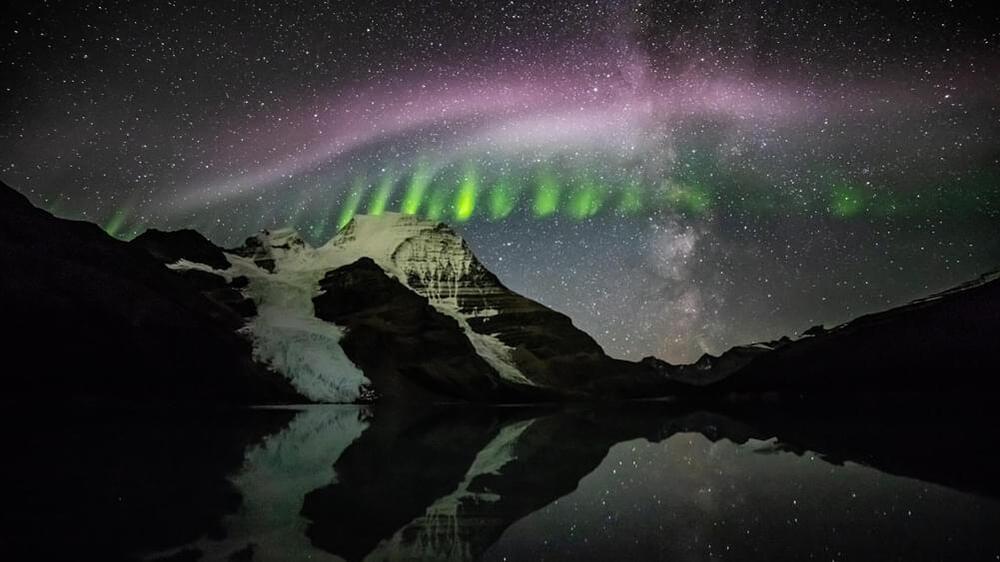While auroras occur at high latitude, the associated phenomena Steve and the picket fence occur farther south and at lower altitude. Their emissions also differ from aurora. A physics graduate student has proposed a physical mechanism behind these emissions, and a rocket launch to test the theory. She argues that an electric field in the upper atmosphere parallel to Earth’s magnetic field could explain the green picket fence spectrum and perhaps Steve and the enhanced aurora.
The shimmering green, red and purple curtains of the northern and southern lights — the auroras — may be the best-known phenomena lighting up the nighttime sky, but the most mysterious are the mauve and white streaks called Steve and their frequent companion, a glowing green “picket fence.”
First recognized in 2018 as distinct from the common auroras, Steve — a tongue-in-cheek reference to the benign name given a scary hedge in a 2006 children’s movie — and its associated picket fence were nevertheless thought to be caused by the same physical processes. But scientists were left scratching their heads about how these glowing emissions were produced.
